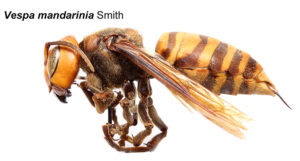
Asian Giant Hornets in Washington State
The news media are reporting that the Asian giant hornet (Vespa mandarinia) has been found in Washington state. This hornet …


El inglés es el idioma de control de esta página. En la medida en que haya algún conflicto entre la traducción al inglés y la traducción, el inglés prevalece.
Al hacer clic en el enlace de traducción se activa un servicio de traducción gratuito para convertir la página al español. Al igual que con cualquier traducción por Internet, la conversión no es sensible al contexto y puede que no traduzca el texto en su significado original. NC State Extension no garantiza la exactitud del texto traducido. Por favor, tenga en cuenta que algunas aplicaciones y/o servicios pueden no funcionar como se espera cuando se traducen.
Inglês é o idioma de controle desta página. Na medida que haja algum conflito entre o texto original em Inglês e a tradução, o Inglês prevalece.
Ao clicar no link de tradução, um serviço gratuito de tradução será ativado para converter a página para o Português. Como em qualquer tradução pela internet, a conversão não é sensivel ao contexto e pode não ocorrer a tradução para o significado orginal. O serviço de Extensão da Carolina do Norte (NC State Extension) não garante a exatidão do texto traduzido. Por favor, observe que algumas funções ou serviços podem não funcionar como esperado após a tradução.
English is the controlling language of this page. To the extent there is any conflict between the English text and the translation, English controls.
Clicking on the translation link activates a free translation service to convert the page to Spanish. As with any Internet translation, the conversion is not context-sensitive and may not translate the text to its original meaning. NC State Extension does not guarantee the accuracy of the translated text. Please note that some applications and/or services may not function as expected when translated.
Collapse ▲
The news media are reporting that the Asian giant hornet (Vespa mandarinia) has been found in Washington state. This hornet …
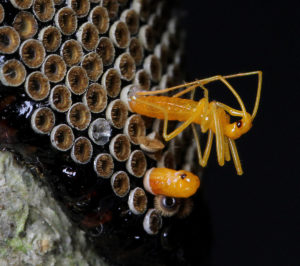
The wheel bug, Arilus cristatus, is North Carolina’s largest assassin bug. It gets its name from the prominent spiny …
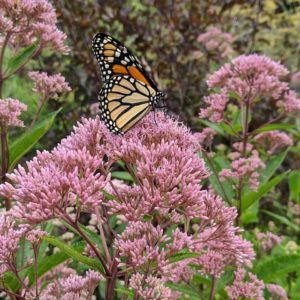
Photos by Debbie Roos, N.C. Cooperative Extension of Chatham County In late 2008, I planted a demonstration pollinator garden at Chatham …
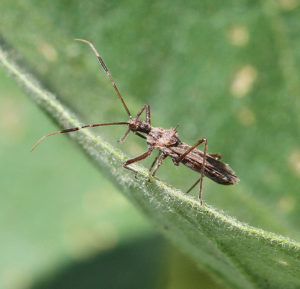
One of my duties as an Agriculture Agent for North Carolina Cooperative Extension is to help farmers when they …
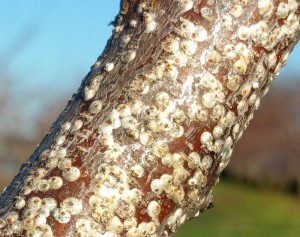
If you have fruit trees, now is a good time to inspect them for scale insects. White peach scale …
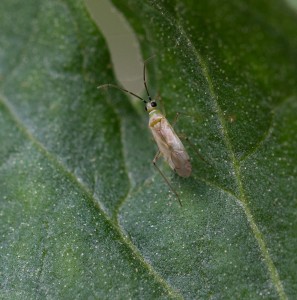
I got a call from a Chatham County greenhouse tomato grower recently about an insect flying around that they had …
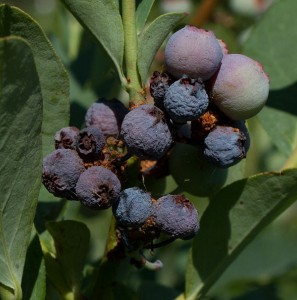
Farmers and gardeners who grow blueberries may notice damage to the developing berries caused by the cranberry fruitworm. The …

Similar to zoysiagrass mites, bermudagrass (Eriophyes cynodoniensis) mites are tiny, worm-like arachnids present in the …

This publication covers the identification, life cycles and treatment of several species of insects, such …

This vegetable pathology factsheet describes the identification and treatment of anthracnose of pepper.

This publication describes the invasive Callery pear species, its offspring, and how it can harm …
This factsheet describes the biology of the cane lace bug or bamboo lace bug, Leptodictya …

This factsheet describes the biology of the banded sphinx moth or lesser vine sphinx, Eumorpha …

This factsheet describes the biology of the elm-grass root aphid, Tetraneura ulmi, and provides residential …

Gummy stem blight is caused by several closely related fungal pathogens in the genus Stagonosporopsis …